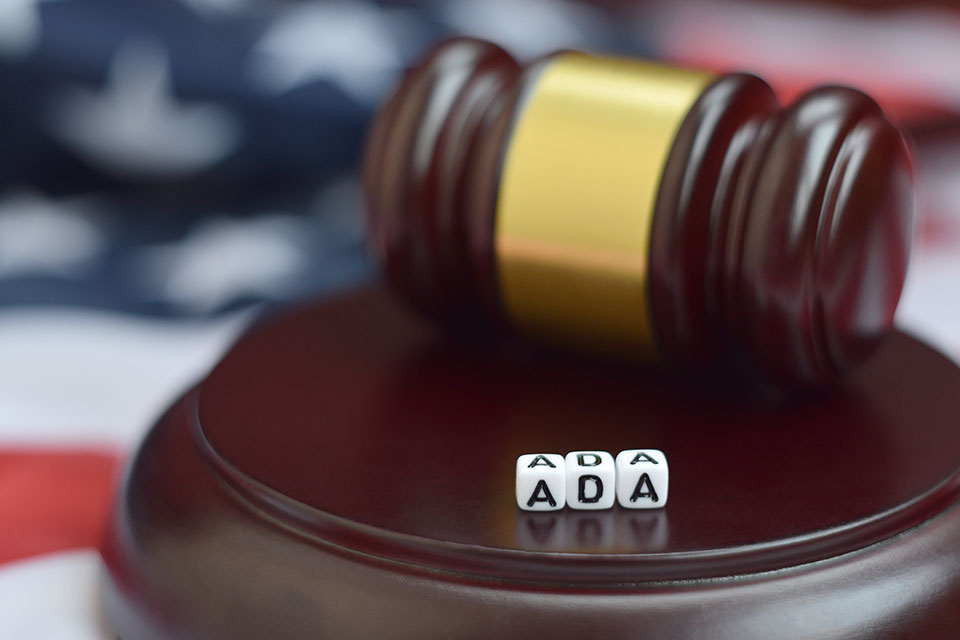Discrimination for People with Disability, Know Your Rights.

According to the CDC, 61 million adults in the United States live with a disability. What people fail to realize is that there may be some processes in place which discriminate against this population. Should these not be addressed, it could cause an individual detrimental effects physically and emotionally.
When it comes to hunting for a job, taking public transport, entering hotels and other aspects of public life, we should ensure that these are safe, providing the same rights and opportunities for all. Find out more about ADA standards and ADA website compliance through ADA Compliance Pros.
About The Americans with Disabilities Act (ADA)
The Americans with Disabilities Act (ADA) of 1990 is a civil rights law that protects people with disabilities from disicrimation across all aspects of public life. These include employment, access to public accommodations, availing state and local government services, telecommunications and many more.
People with Disabilities
The ADA defines a “disability” as “a physical or mental impairment that substantially limits one or more major life activities, an individual having a record of such an impairment, and being regarded as having such an impairment.” Major life activities include the operation of major bodily functions (i.e. human body systems), using one’s senses, performing manual tasks, caring for oneself, etc.
Scope of the Americanns with Disabilities Act (ADA)
As previously mentioned, the ADA protects people with disabilities’s rights across multiple aspects of public life. These include:
- Employment (Title I)
- Public Services (Title II)
- Public Accommodations and Services Operated by Private Entities (Title III)
- Miscellaneous Provisions (Title IV)
Employment
Title I of the ADA deals with the protection against the disminitation, harassment and unfair treatment in employment practices of people with disabilities. These employment practices are namely, recruitment, hiring, payment, training, promotions, and firing, among others. The ADA prohibits private employers, state and local governments, employment agencies and labor organizations and labor management committees from denying an individual because of their disability.
In order to be protected by the ADA, an individual must be able to perform essential job functions with or without reasonable accommodation. Determining which job functions are essential would require one to consider factors such as the required skills needed, time spent performing a function, and number of people available to perform the function. For operations that require reasonable accommodation, it’s the employer’s responsibility to make necessary work adjustments. Examples of which are providing regular breaks for people with diabetes and allowing an interpreter during interviews.To learn more on how to make employment processes more accessible, you may refer to the U.S. Equal Employment Opportunity Commission (EEOC) at https://www.eeoc.gov/
State and Local Government Services
Title II of the ADA covers state and local government services. This pertains to not just physical barriers, but other barriers for visual and non-visual disabilities. Title II of the ADA heavily focuses on the accessibility of transportation.
Transportation
Public transportation services such as buses, rail transits and subway systems must abide by ADA standards. These vehicles should have priority seating, allow service animals, have assistance equipment available (e.g. lifts, ramps, handlebars, braille, visual alarms) and remove other elements that may restrict people with disabilities from using such form of transportation. Transportation agencies are required to provide paratransit services, which provide assistance to people with disabilities when travelling.
In addition, the ADA has guidelines for sidewalks to ensure equal access to transportation. The guidelines include widening walkways, providing ramps, increased crossing times and lower pedestrian control signals.
Aside from the ADA, other laws like the Air Carrier Access Act (for air transportation) and guidelines for public transportation, enforced by the U.S. Department of Transportation are available to promote accessibility when it comes to transportation.
Public Accommodations
Title III of the ADA prohibits establishments such as hotels, restaurants, schools, libraries, parks, etc. from discriminating against people with disabilities. This provision enumerates standards for parking, entrances and available assistance resources these public accommodations should follow.
Miscellaneous Provisions
Title IV of the ADA involves ADA compliance in telecommunications, as enforced by the Federal Communications Commission (FCC). According to this section, telephone and internet companies are required to provide a nationwide system of interstate and intrastate telecommunication relay services. Doing so would allow people with disabilities, especially with hearing and speech impairments, to be able to communicate over the telephone. With this, these rates should have no additional charges and should be available 24/7.
In this section of the ADA, a provision was made stating that closed captioning is required for public service announcements.
Filing an Americans with Disabilities Act (ADA) Complaint
If you or any person you know is interested in filling an ADA complaint against a state or local government or public accommodation, there are three ways you could do so. To file a complaint online, you may report through this link: https://civilrights.justice.gov/report/ To file a complaint via mail or facsimile, you may send it to the Disability Rights Section (DRS) in the Department of Justice. When the complaint, its recommended to include your contact details, a brief description of the acts of discrimination by the business/organization, and other necessary supporting details. After applying, the Department of Justice will review the application and will contact you should your case be opened for investigation.
Bring the best of the CEOWORLD magazine's global journalism to audiences in the United States and around the world. - Add CEOWORLD magazine to your Google News feed.
Follow CEOWORLD magazine headlines on: Google News, LinkedIn, Twitter, and Facebook.
Copyright 2025 The CEOWORLD magazine. All rights reserved. This material (and any extract from it) must not be copied, redistributed or placed on any website, without CEOWORLD magazine' prior written consent. For media queries, please contact: info@ceoworld.biz








